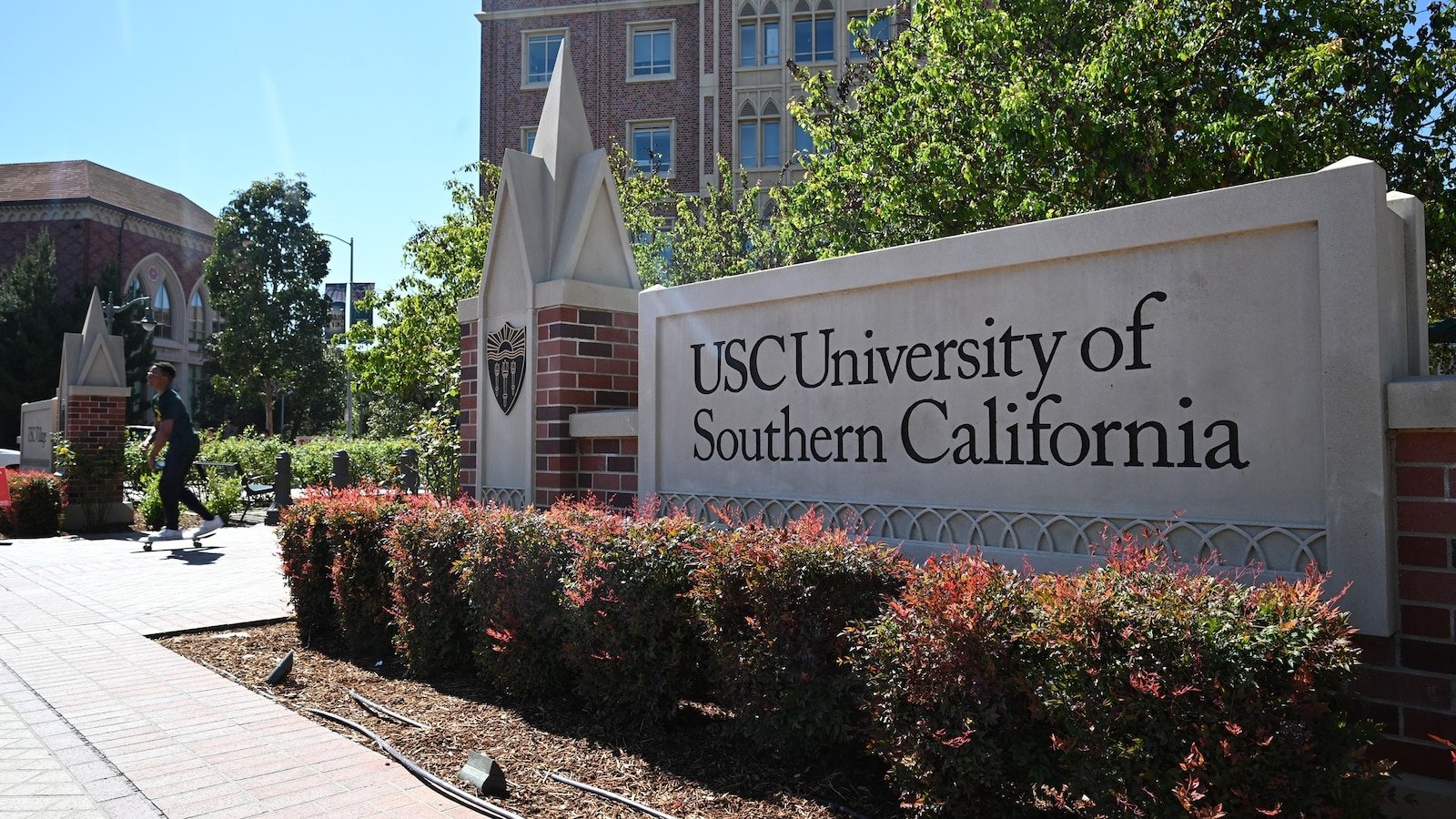California has become the fourth state to ban legacy admissions in the college application process, a practice that has long been criticized as favoring white or wealthy students based on their familial alumni connections.
“In California, everyone should be able to get ahead through merit, skill, and hard work,” Gov. Gavin Newsom said in a Monday statement. “The California Dream shouldn’t be accessible to just a lucky few, which is why we’re opening the door to higher education wide enough for everyone, fairly.”
The decision affects private and nonprofit universities. The University of California system eliminated legacy admission preferences in 1998, according to Newsom’s office.



CA banned race base admission in the '90s in favor of a system that guaranteed admissions to top percentile students.
Post Students for Fair Admissions, schools can’t use race alone as a plus or minus nation wide. Like California has been doing it for the past 3 decades.
Thomas goes on and calls out the issue legacy admissions in his lengthy concurrence.
The comment about the Universiry of California having its most diverse class leaves out some colleges saw a 40% drop in black and latino students that didn’t get close to pre Affirmative Action numbers for almost 20 years.
The ban on legacy admissions will ultimately change very little in my opinion as the the majority of legacy candidates come from wealthy families with ties to the university. They’ll just call a legacy candidate something else because we all know this won’t really be enforced.
You really want to make higher education fair you have to take money out of it and force institutions to take in candidates fairly.
Using a bad faith argument from Thomas undercuts your position. The way the Right frames Affirmative Action as “reverse racism” and part of their over arching attack on DEI is all done in bad faith. They know removing a policy like Affirmative Action allows them to filter out those they see as “less than” under the cover of equality, when white people have been operating from a position of great advantage, while continuing to chip away at any gains by people of color.
The US has used things like Jim Crow, Redlining, White Flight, and on and on in order to keep an equality divide. Meanwhile white people could always buy homes/land and pass on generational wealth, putting white kids ahead of kids of color from day one, and compounding generation after generation. And that lack of generational wealth plays into a divide in the quality of education as well. And the strawman of “but there are poor white people” is also often trotted out to defend “race-neutral policies” like “admissions to top percentile students”. But having poor white people doesn’t somehow erase generations of oppression against minorities. And people creating a “top percentile student” policy know that statistically they still end up with a more white population as a result.
So a policy like Affirmative Action shouldn’t be framed as giving a minority advantage, it’s more like trying to level the field (for at least a percentage of students) that is titled in one direction.
/rant
I would recommend you read his concurrence before you make comments as to the nature of his argument. I get it’s a lengthy one at 58 pages but as you seem to suggest in your comment strawmanning people in not a good practice.
https://www.supremecourt.gov/opinions/22pdf/20-1199_hgdj.pdf
But if that’s too long I’ll try and summarize with a few lines from it.
“The Constitution abhors classifications based on race, not only because those classifications can harm favored races or are based on illegitimate motives, but also because every time the government places citizens on racial registers and makes race relevant to the provision of burdens or benefits, it demeans us all.”
“enunciated in the Declaration of Independence and the Constitution of the United States: that all men are created equal, are equal citizens, and must be treated equally before the law.”
““[o]ur Constitution is color-blind, and neither knows nor tolerates classes among citizens.” Plessy v. Ferguson, 163 U. S. 537, 559 (1896) (Harlan, J., dissenting).”
And here’s the reading of a portion:
https://apps.oyez.org/player/#/roberts13/opinion_announcement_audio/25581
Just as it is wrong for white people to benefit from preferential treatment over black people who were detrimented (such as under slavery or Jim Crow). It is wrong for black people to benefit from preferential treatment over asian people who were detrimented (such as under Japanese interment or the Chinese exclusion act).
Your repeating right wing (hate group) language, again undercutting what I think you are thinking you are supporting. What Thomas is saying is the same language used against LGBTQ+ people when they say things like “why do they need a parade to celebrate themselves, you don’t see straight parades”. Thomas knows what he is saying, and crafts his hateful rhetoric carefully, but it is all full of dog whistles and always in bad faith. There is a reason he “vacations” with and gets RVs from the rich white billionaires that just happen to collect Nazi memorabilia.
Tim, dude, seriously. Actively arguing that it is appropriate to preferential treatment or negative treatment towards people on the basis of race. While claiming a law that shows no favors to anyone on the basis of race is like the words of hate groups.
There’s a broad distinction between letting people express themselves in their own free time and supporting systemic race based discrimination. Nobody is stopping straight people from going out and expressing themselves.
You are clearly the one with the bad faith stance. Seriously stop once, and in a moment of humility consider if it is you who might be wrong.
That wording is again hard Right wording/phrasing. We are not giving preferential treatment, we are attempting to undo some of the systemic racism in the system.
I think this video is pretty good at looking at Black MAGA, and the wording they use. And this part of the video hits are talking point here perfectly.